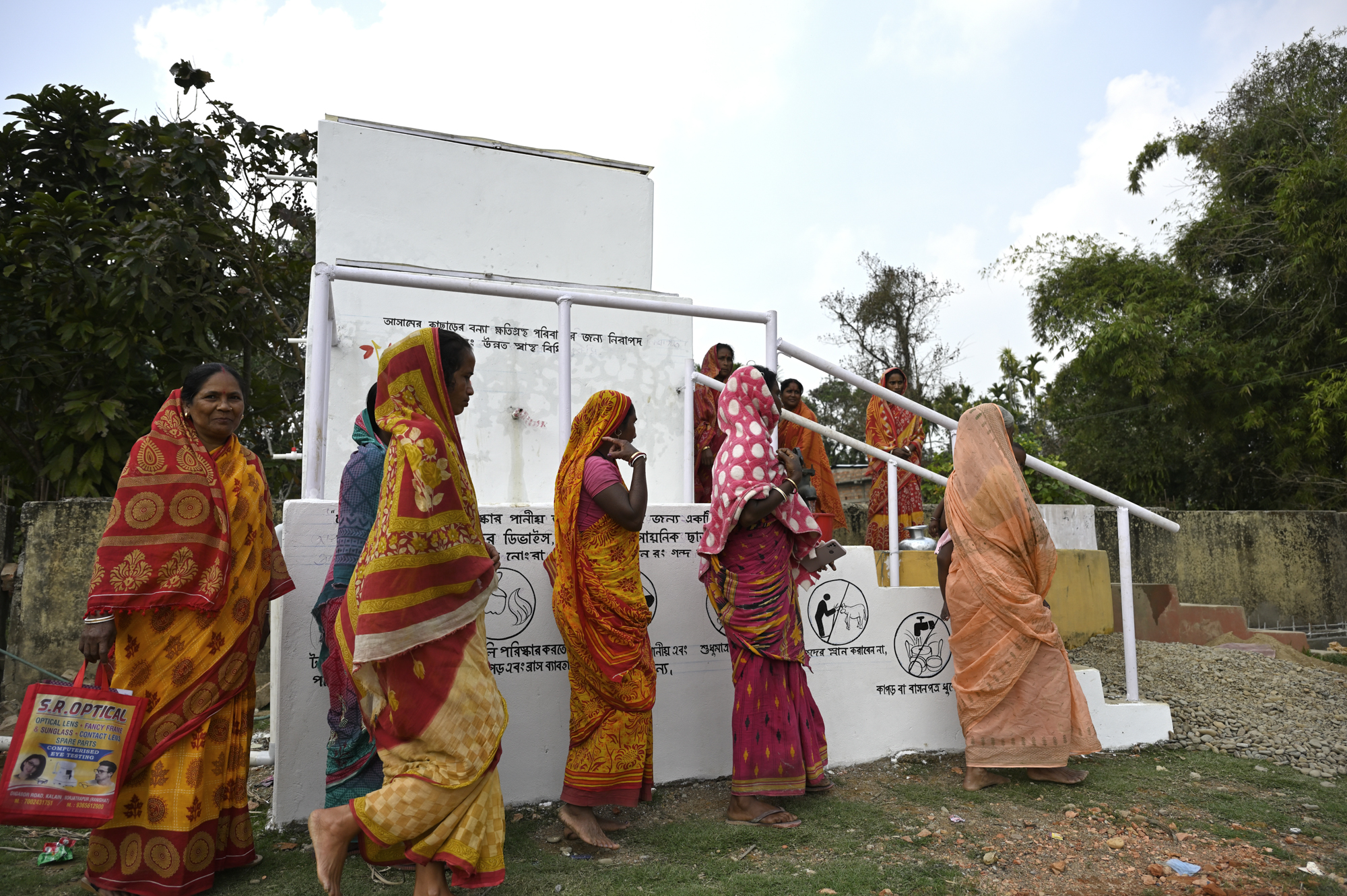
Preparing for safe drinking water during natural disasters

Recently constructed terra filter in Cachar District of Assam, India. Built on a high platform, ten such filters have been built in villages most affected by floods. Credit: Siddharth Behl/SEEDS.
What would you do if you saw river water levels gradually rising to your doorstep? That’s what people in villages of the Cachar District in Southern Assam, India, vividly remember from May and June 2022. This scenic Northeastern region of India, particularly Lower Assam, has seen its share of flooding in recent years. A 60 year old resident, Shefali Das, has seen 10 to 15 floods in her lifetime, “but the floods in 2022 were unprecedented.”
Rescue and relief services had challenges reaching those most affected as many roads were submerged. District Disaster Management Authority’s District Program Officer, Shamim Laskar, recalls, “We were able to get food packets airdropped. However, we knew that people did not have drinking water and that was a major concern for us. We had managed to rescue people and get them food – but there was an outcry for drinking water!”
As Sustainable Environment and Ecological Development Society (SEEDS) completes an arduous two years of restoration and relief work in the five most affected areas of Assam, there is hope that should there ever be a similar situation, drinking water will be accessible.
In Mahadevpura, SEEDS has installed the first prototype of the Defence Research and Development Organisation (DRDO) terra water filter. Filtering up to 1000 liters, it can ensure during any emergency, residents of the area will have access to potable water. SEEDS has installed the Terra Filter at ten locations vulnerable to flooding and has encouraged community management and maintenance of the Terra Filters.
 Community members collect water from the terra filter in the Cachar District of Assam, India. Credit: Siddharth Behl/SEEDS.In addition to preparing for clean drinking water during emergencies, SEEDS works to ensure other measures of preparedness, such as through handwashing education, community health worker capacity building, emergency preparedness/response trainings, supply sharing, and more.
Community members collect water from the terra filter in the Cachar District of Assam, India. Credit: Siddharth Behl/SEEDS.In addition to preparing for clean drinking water during emergencies, SEEDS works to ensure other measures of preparedness, such as through handwashing education, community health worker capacity building, emergency preparedness/response trainings, supply sharing, and more.
Director SEEDS Dr Manu Gupta emphasises the importance of the work undertaken in the district: “Relief and recovery requirements of the most marginalised and vulnerable individuals have to be prioritised. Further, while building back, its critical to enhance their long-term resilience, thereby lowering their social economic vulnerability, preparing them better for future disasters, and enabling more sustainable lifestyles. That’s why there was a focus to ensure that drinking water be available to communities in any such situation in the future, too.”
Unfortunately, we can expect the future to include more frequent flooding, bringing with it the risk of diseases like diarrhoea. That risk is now lower for these ten communities. When the next flood strikes, they will have safe drinking water at hand to carry them through.


